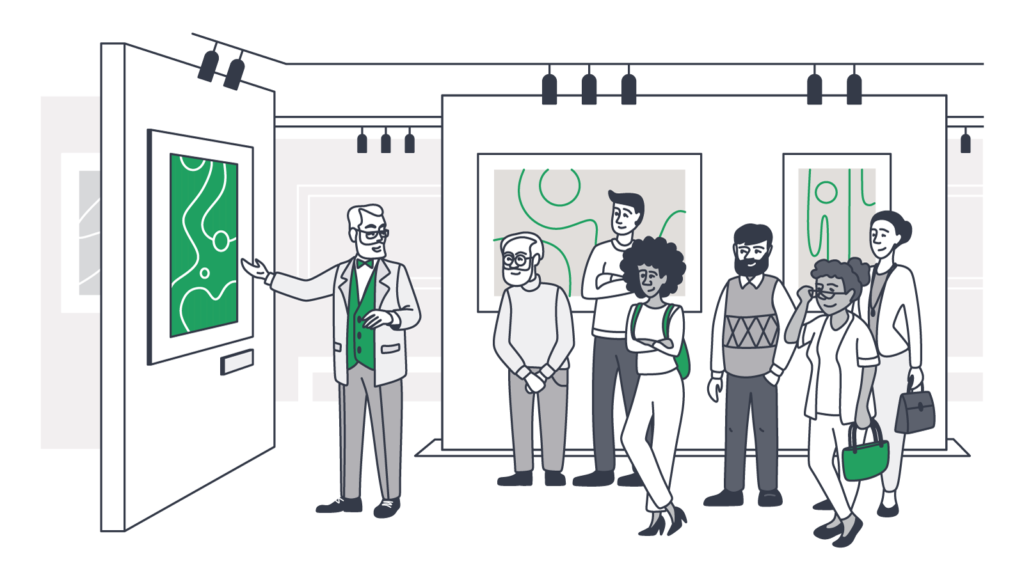A Conversation with Katherine Boydell, Black Dog Institute

Social prescribing is a way of linking people with non-medical support. It is a way of enabling GPs and allied health care professionals to refer patients, whose health or mental health is affected by non-medical factors, such as housing, financial stress, health literacy, loneliness or social exclusion.
Examples of social prescribing programs include: biblio/book club prescriptions, exercise prescriptions, art prescriptions, even pet prescriptions.
While so far, only a handful of studies have been done on social prescribing, more and more studies are coming to light, and the early evidence is overwhelming.
The studies, most of which have been run in the UK, point to improvements in quality of life, community inclusion, and emotional and general wellbeing, as well as reduced levels of depression and anxiety.
For example, one study into social prescribing in Bristol (UK) found patients who had participated in a social prescribing program experienced an ongoing reduction in anxiety, and improvements in general satisfaction, self worth and happiness.
The results have been so stark, Bromley by Bow Centre, one of the world’s first health care centres to leverage social prescribing, has been releasing an annual report on their results since 2016.
In light of this emerging evidence, a few organisations in Australia have begun to experiment with the concept of social prescribing.
One of the figures spearheading these studies in Australia is Black Dog Institute’s Professor of Mental Health, Professor Katherine Boydell.
Meet Professor Katherine Boydell
Professor Katherine Boydell has a masters in community health epidemiology and a PhD in sociology. Before taking up the role of Professor of Mental Health at Black Dog Institute, she worked in Toronto as a Senior Research Scientist for The Hospital for Sick Children and as a Professor at the University of Toronto.
Katherine describes herself as a qualitative methodologist. She says, “I do a lot of work around narratives and the importance of a story. I look in-depth at data that is very focused on the context within which an intervention or an illness is experienced, or a service or support is provided.”
This research is run in a lab at Black Dog Institute called the AKT Lab. Katherine says, “It’s part of the research program. It stands for the Arts-Based Knowledge Translation lab. It’s all about working with creative designers and artists to bring different art genres into the research process.
“It really focuses on the realm of mental health and wellbeing, from prevention to early intervention, and treating serious mental health issues. So I’m not focused on any particular diagnosis, but more on how we might go about tackling these things.”
Black Dog’s social prescribing research
Katherine says the idea for developing Black Dog’s social prescribing programs came from a workshop held at Black Dog that was centred around uncovering what makes the “perfect” clinic.
Katherine explains, “We brought in service-providers: clinicians, mental health consumers and their families, designers, researchers, policy makers… and we had a design thinking workshop. It was really all about trying to discover what might constitute the ideal clinic.
“We had a great facilitator who actually wrote a book on Design Thinking. What came out of that day, which was really interesting to me, was that people thought the clinic itself should move beyond the consulting room and acknowledge the wider social determinants of health.
“A lot of the conversations that occurred at that workshop really recognised that mental health is affected often by non-medical factors, such as marginalised housing, or health literacy, loneliness, social seclusion, financial stress… the list goes on.”
“If someone comes into our clinic for depression, and they’re depressed because they’re lonely or socially isolated, then no amount of medication or psychological intervention itself is going to solve their problem.”
Uncovering evidence in the UK
Katherine says, “After that workshop, I thought, ‘Okay, let’s see what the evidence on social prescribing is.’” When she started digging around, she found studies done in the UK.
Katherine explains, “I had a look at the literature and the bottom line was that, in large, there were very positive outcomes on reducing anxiety and depression, enhancing mental health literacy, and enhancing mental health and wellbeing overall. There was also a huge impact on community and inclusion, so reducing social isolation.
“A lot of what I saw in the evidence was that we tend to really underestimate the relevance of loneliness and social isolation, as well as other social determinants of health.
“I think, across all ages, 10-15% experience chronic loneliness. It is one of the bigger mental health problems in the general population and has been identified as a risk factor for depression.”
Katherine explains that social prescribing can play an enormous role in improving the health of the nation when you consider that “20% of GP visits are for non-medical related reasons.”
“One study* found that social isolation was associated with an overwhelming 29% increase in mortality.”
Black Dog’s ‘Arts on Prescription’ program
As part of Black Dog’s research, Professor Katherine Boydell and her colleagues are piloting a social prescribing program – the Arts On Prescription program.
She explains, “The program is in partnership with The Art Gallery of NSW. We’re offering an 8-week art program with the art gallery to clients who have been referred to our depression clinic.
“The way it’s structured is that there is a community engagement producer at the art gallery that we’ve worked with before. They spend the first hour of each of the 8 sessions engaging participants with a particular piece of artwork or installation.
“This is followed by a morning or afternoon tea, depending on the time. Then the last hour involves a creative activity inspired by the art they have viewed, so that research participants can creatively engage in art-making.
“We’ll be measuring general mental health and wellbeing, anxiety and depression, and social inclusion, using validated mental health scales. We’ll measure pre- and post- program as well as 3 months post-program. We’re really trying to understand the impact of the program.”
Katherine says that social prescribing has been successfully rolled out in Canada.
“In Quebec, they just rolled out a museum on prescription program where every GP in the province can give up to 50 patients 4 tickets to the local museum.”

“From a cost-effective’ point of view, it’s quite appealing,” Katherine says. “The data from the UK shows the savings in terms of reduced emergency room visits as well as fewer GP visits.”
Resources GPs may find interesting
As well as Black Dog’s page on social prescribing, Katherine recommends several places for GPs to go to learn more about social prescribing.
“If you go to the website of the Social Prescribing Network, they have some really powerful case studies and quotes available,” she says.
“In the UK, there is also a platform for social prescribing called Elemental. They’ve created a resource that lets people find GPs, community groups and link workers in their local area. I’m hoping we can grow something like that here at Black Dog.”
Exciting times ahead
One of the most exciting things about social prescribing is the traction it is developing all over the world. Even the World Health Organisation has placed a focus on social prescribing and art prescription.
This year, for the first time, The World Health Organisation launched a report on the evidence-base for arts and health interventions.
“The World Health Organisation report represents the most comprehensive evidence review of arts and health to date, examining over 3,000 studies.”
Katherine says the thing she finds most exciting about social prescribing is its reliance on the broader community to help support those with health problems. This extends the net of help people can access.
“You can pick up any policy document around health and it always says that good health care includes the importance of meaningful consumer input and getting a patient’s friends and family involved in the decision-making,” Katherine says.
“Other parties, like families, are becoming much more involved in healthcare, and I think that changes the way in which GPs and other health care providers approach their decisions.
“I think social prescribing acknowledges this. It places a lot of the decision-making in the hands of health care consumers themselves. And it helps us move away from a focus on only biomedical support when helping those with depression or anxiety.”
To learn more about Black Dog Institute’s social prescribing programs, visit Black Dog Institute’s social prescribing page.


